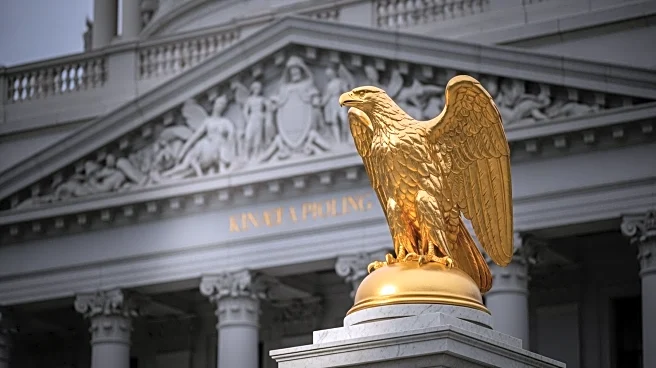What's Happening?
President Trump has announced plans to issue an executive order mandating voter ID requirements for all votes in future elections. The announcement was made via Truth Social, where Trump emphasized the need for voter ID without exceptions. This move is part of Trump's broader efforts to address election integrity, a key issue in his administration. The executive order aims to standardize voting procedures across the country, ensuring that every voter presents identification before casting a ballot.
Why It's Important?
The proposed voter ID requirement could significantly impact voting accessibility and election processes in the United States. Proponents argue that it will enhance election security and prevent voter fraud, while critics warn it may disenfranchise marginalized groups, including minorities and low-income individuals who may face barriers in obtaining identification. The executive order could lead to legal challenges and debates over states' rights and federal oversight in election administration. The move reflects ongoing political tensions surrounding election integrity and voter access.
What's Next?
The executive order is likely to face scrutiny and potential legal challenges from civil rights groups and state governments. The implementation of voter ID requirements may vary across states, leading to discrepancies in voting procedures. Political leaders and advocacy organizations are expected to mobilize efforts to support or oppose the measure, influencing public discourse and policy decisions. The order may also prompt legislative action at the state and federal levels to address election security and voter access.
Beyond the Headlines
The voter ID requirement could reshape the landscape of U.S. elections, affecting voter turnout and participation. The measure may exacerbate existing political divides and fuel debates over election reform and voter suppression. The executive order highlights the balance between ensuring election integrity and protecting voting rights, a critical issue in American democracy. The long-term implications of the policy could influence future electoral strategies and political dynamics.








